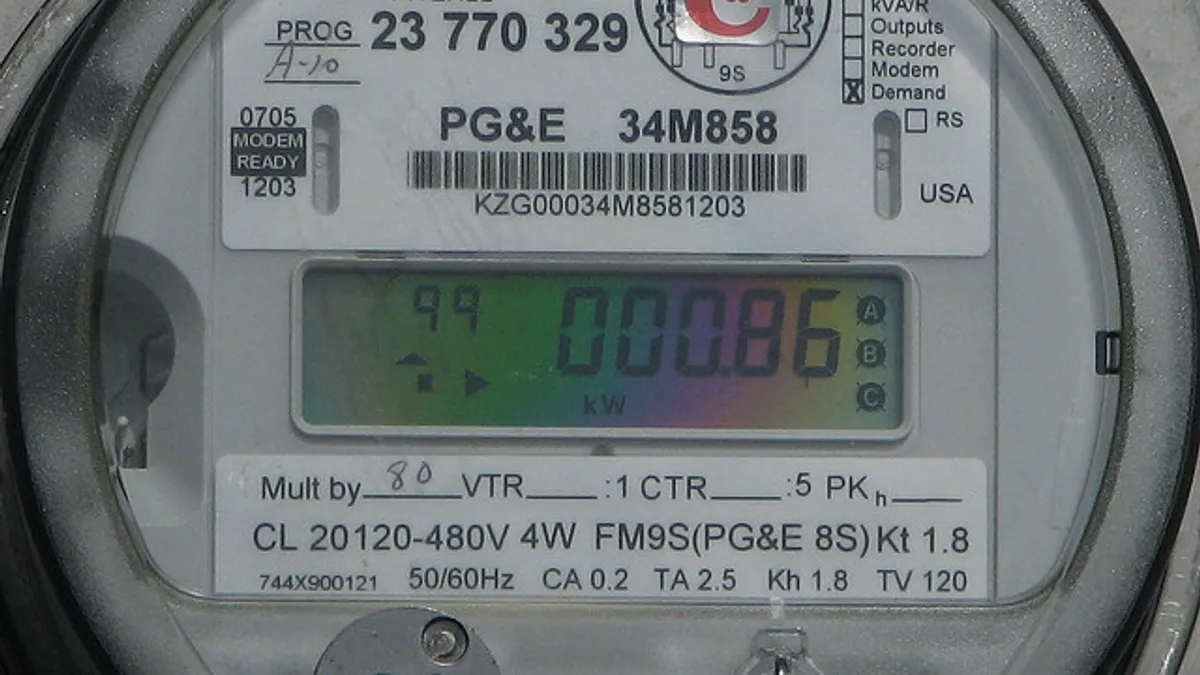Dive Brief:
- The pulsed transmissions of data smart meters send to utilities pose no hazard to the health of Arizona residents, according to a recent study. The report, Public Health Evaluation of Radio Frequency Exposure from Electronic Meters, was commissioned by the Arizona Department of Health Services and found the radio waves that replace traditional meter reading were too weak and intermittent to cause concern.
- Requested by the Arizona Corporation Commission, the year-long study considered measurements taken by Arizona Radiation Regulatory Agency workers of radio waves at various locations and reviewed smart meter radiation studies and standards from other states and countries.
- The study concluded that smart meters, which are increasingly being employed by Arizona utilities, send such intermittent, low-power, brief radio wave transmissions that they fall well below even the most stringent safety levels for RF (radio frequency) radiation.
Dive Insight:
Smart meter transmissions are, according to the study, weaker and shorter in duration than cell phone signals and are far safer since they are typically sourced outside of buildings and much farther from the human body.
There remain claims that smart meters disrupt body cycles, sleep patterns, and body functions. Advocates argue the transmissions cannot cause such harms, as they are sent no more than once an hour and last for only a split-second.
To media claims that smart meters invasively track electric utility customers’ use of appliances and media, utilities say smart meters can only measure hourly or daily electricity usage and have access to no other customer information.













